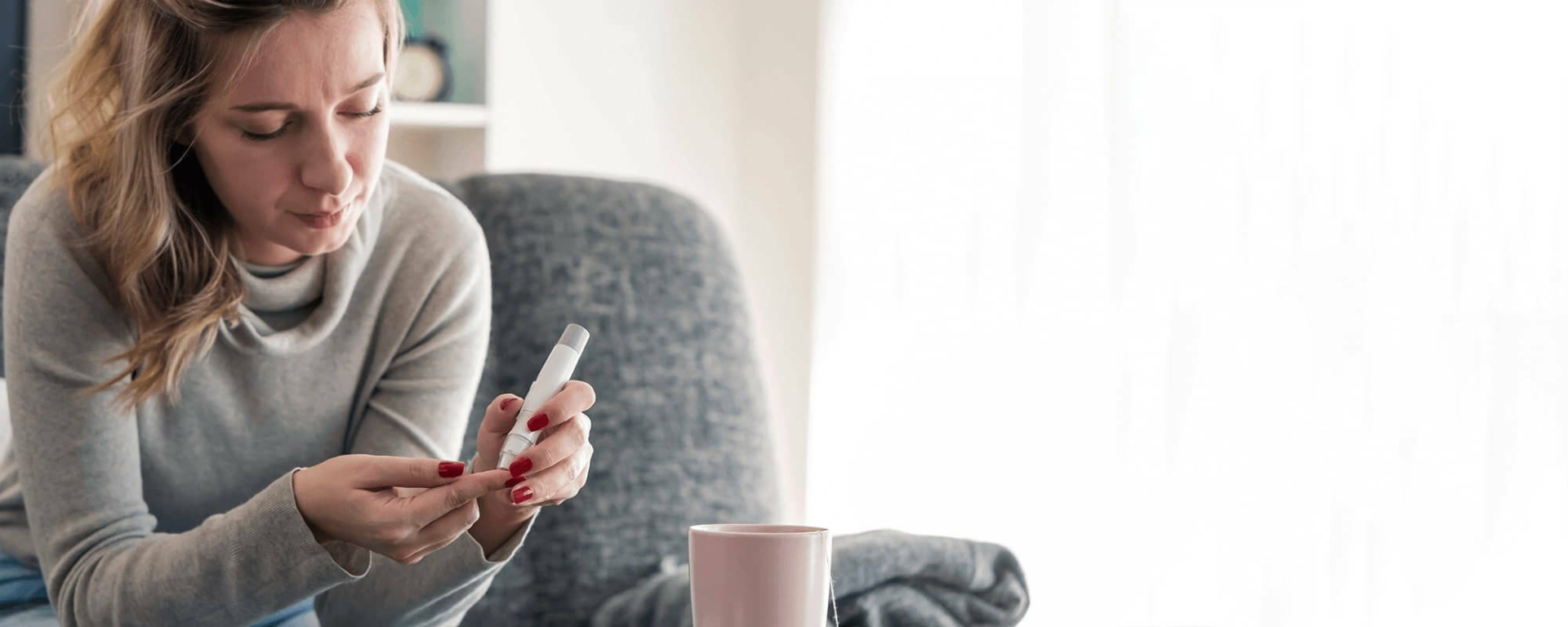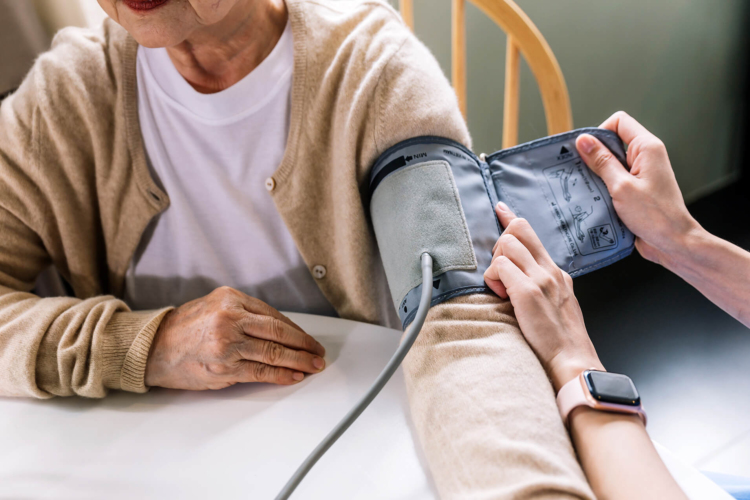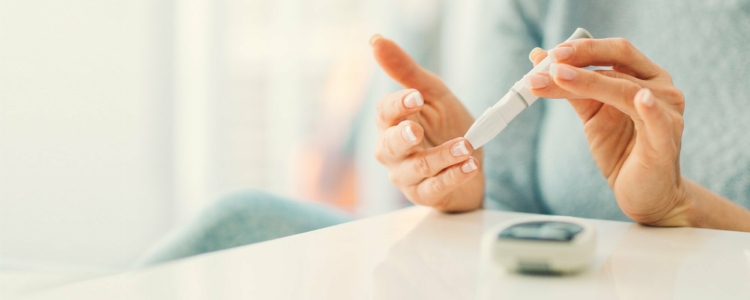The most common symptoms of diabetes are increased urination, excessive thirst, extreme hunger and weight loss.
These symptoms occur because, when you are hyperglycemic, your kidneys are working at full capacity to eliminate water and dilute excess sugar. This is why people with diabetes urinate more often and in larger amounts. Increased urination also leads to excessive thirst. And finally, since we lose calories when we urinate, people with diabetes may experience sudden and unexplained weight loss. In turn, they feel very hungry.
Here are some other symptoms:
- Fatigue / drowsiness
- Nausea / vomiting
- Dry mouth
- Blurred vision
- Decreased physical endurance
- Irritability
- Tingling / numbness in hands and feet
- Erectile dysfunction
- Slow-healing wounds
- Frequent and recurring infection
Finally, uncontrolled hyperglycemia can lead to major complications such as:
- Nerve damage
- Digestion problems
- Kidney failure
- Heart attack and stroke
- Eye problems (even blindness)
- Amputation
In short, diabetics do not all react the same way to a blood sugar imbalance. It is important to consult a physician if you have one or more of these symptoms. A blood test can determine if your blood sugar level is too high.
Prevention and Management of Diabetes: Summary
Unfortunately, type 1 diabetes cannot be prevented, but lifestyle changes can have a big impact on type 2 diabetes. For example, if you are overweight, losing as little as 7% of your body weight and exercising more (e.g. 30 minutes a day) can lower your chances of developing diabetes by more than 50%.
To diagnose the disease before it is too late, a blood test is recommended every three years for anyone over the age of 40, especially if you have risk factors such as obesity or a family history of diabetes.
Self-Monitoring of Blood Sugar
Regularly monitoring blood sugar is an essential part of controlling the disease. The most common way to test blood sugar is with a blood glucose meter, which analyzes a small amount of blood from your fingertip. Your pharmacist affiliated with Accès pharma or a member of their team can show you how to use this device.
Treatment
A wide array of pharmaceutical treatments is available for diabetics. In most cases, type 1 diabetes is controlled by insulin injections. For type 2 diabetes, blood sugar levels are usually maintained within an acceptable range thanks to medication therapy. In cases where the disease still remains uncontrolled, insulin treatment may be recommended. Whenever a healthcare professional adjusts your treatment, make sure to pay close attention to your blood sugar levels. In case of any adverse side effects, such as hypoglycemia, contact your pharmacist immediately in order to have your treatment adapted accordingly.
Over-the-counter medications and natural health products may not be suitable for diabetics, or they may interfere with their medication. There are, however, certain products specifically tailored to the needs of diabetics, such as candy or syrups with no sugar added. Before using any new products, always consult your pharmacist, who will gladly advise you.
In short, the key to success when it comes to controlling one's diabetes is based on two key elements: adopting healthy life habits and self-monitoring blood sugar levels.
To see if your treatment is effective, your doctor may ask you to take a glycated hemoglobin (HbA1c) test a few times a year. This test measures your average blood sugar level over the past three months.
Finally, you will regularly have your cholesterol and blood pressure measured and your feet, eyes and kidneys examined in order to prevent any complications.
Please note that you can take a blood glucose test at the pharmacy to find out your blood sugar level. But only blood tests that are sent to a laboratory can give you an accurate and reliable diagnosis.
If you think that you have symptoms of diabetes, ask your pharmacist affiliated with Accès pharma or your doctor for advice.
This information is not a substitute for professional medical advice and pharmacist-owners affiliated with Accès pharma cannot be held responsible for this information. The information was true and accurate at the time of publication, but it is subject to change.






